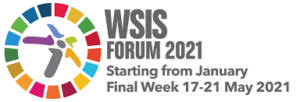Inclusive and responsible digitalization in the city
- Viewed - 2407
Description

Digital tools have been part of people’s daily lives for years in all areas ranging from work, housing, transportation, health, education, culture, social rights, etc. These tools now cover all areas of human development. The current health crisis has further accelerated the spread and usage of these tools. They have become major pillars of resilience in our cities, enabling the continuous delivery of essential services and information to urban dwellers. Local authorities have also increasingly been using these tools in a variety of ways: to provide information to their population, to engage them, to optimize the management of their facilities and infrastructure, to develop their economy and their attractiveness.
The development of digital technologies is unquestionably positive for both local authorities and their populations. However, this phenomenon raises the question as to what constitutes public interest and what is the role of local authorities in this respect. Beyond the immediate benefit they provide, these digital transformations have implications that are not only restricted to technical issues. For instance, one might question to what extent these technologies are inclusive and what is their environmental footprint:
Inclusion: the recent health crisis has shown that the most vulnerable groups were also those who faced the greatest difficulty in accessing the resources offered by Internet (online teaching, administrative procedures, etc.). In those cases, digital technology has amplified existing social inequalities. Yet, digital technology has the potential to offer many opportunities for inclusion. It can provide more learning tools, democratize access to knowledge, and support innovation.
Environment: while the recent health crisis has promoted digital technologies as a way to limit human mobility and the resulting pollution, resorting to these technologies has also led to increased energy consumption. Indeed, the environmental footprint of digital technologies is now equal to that of air transportation and will undoubtedly continue to grow. Therefore, cities have to question their digital choices and balance digital technologies vs. non-digital solutions.
Digital technologies provide many solutions in relation to the delivery of services to the population, but they have to be examined through the lenses of inclusion and the preservation of the environment. It is a balancing act that has to be rooted in dialogue involving all levels of government, civil society and other relevant stakeholders. The proximity of local authorities and their capacity to directly interact with their population position them as a privileged vector of dialogue between States, civil society and others to collectively work on solutions to strengthen digital inclusion and sobriety.
Opening remarks & moderation
- M. Sami Kanaan, Mayor of Geneva, Member of AIMF Bureau, President of GCH
- Ms.Kamelia Kemileva, Executive Manager, Geneva Cities Hub
Speakers
- M. Malcolm Johnson, Deputy Secretary General, ITU
- Ms. Souad Abderrahim, Mayor of Tunis, Tunisia
- M. Pudence Rubingisa, Mayor of Kigali, Rwanda
- M. Bertrand Maes, Deputy Mayor of Lyon, France
- M. Guiako Obin, Executive Director, Babylab, Abijan, Côte d’Ivoire
Registration
To attend this event, please register here.
Video
Watch the video of the event here.
